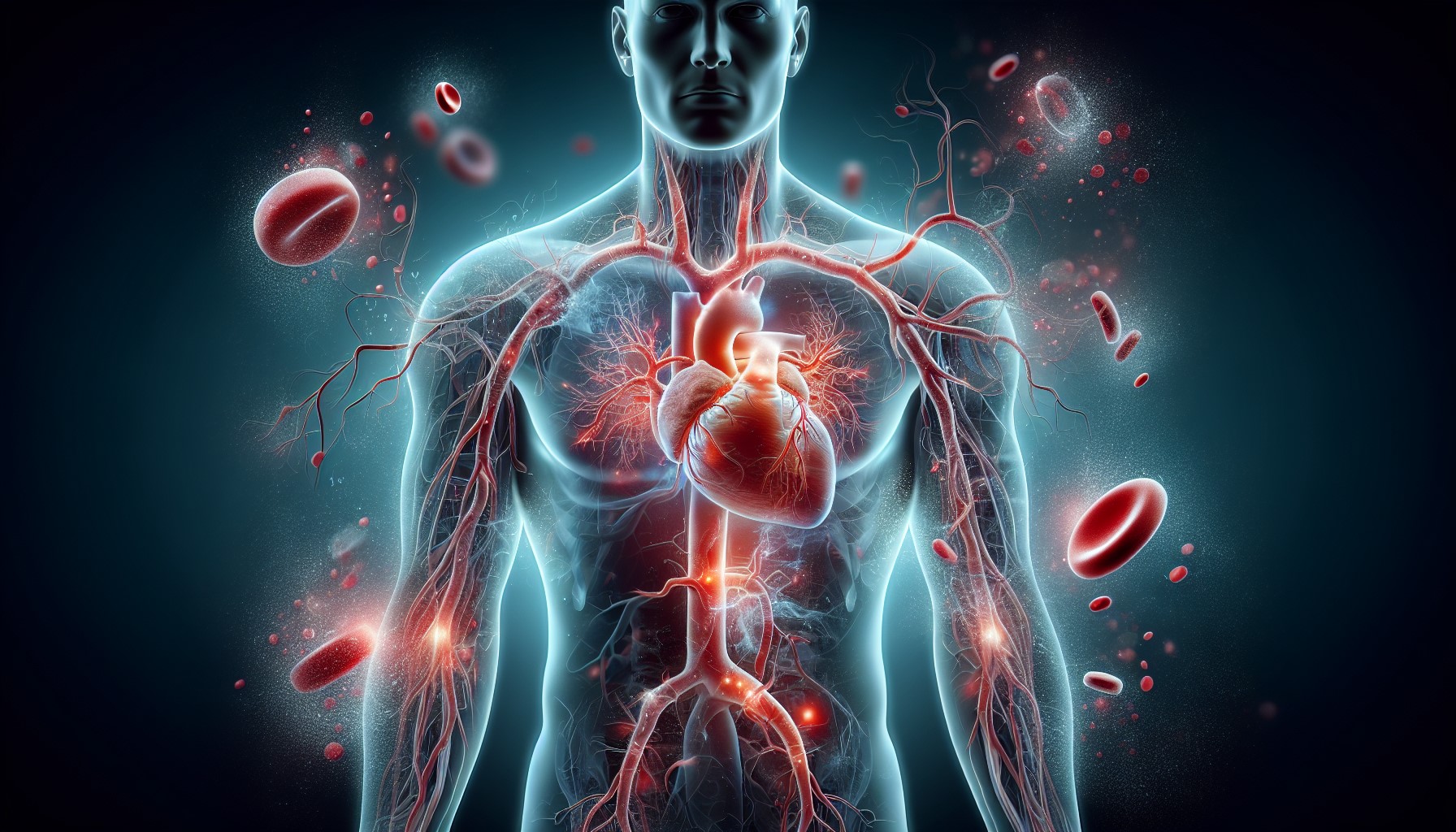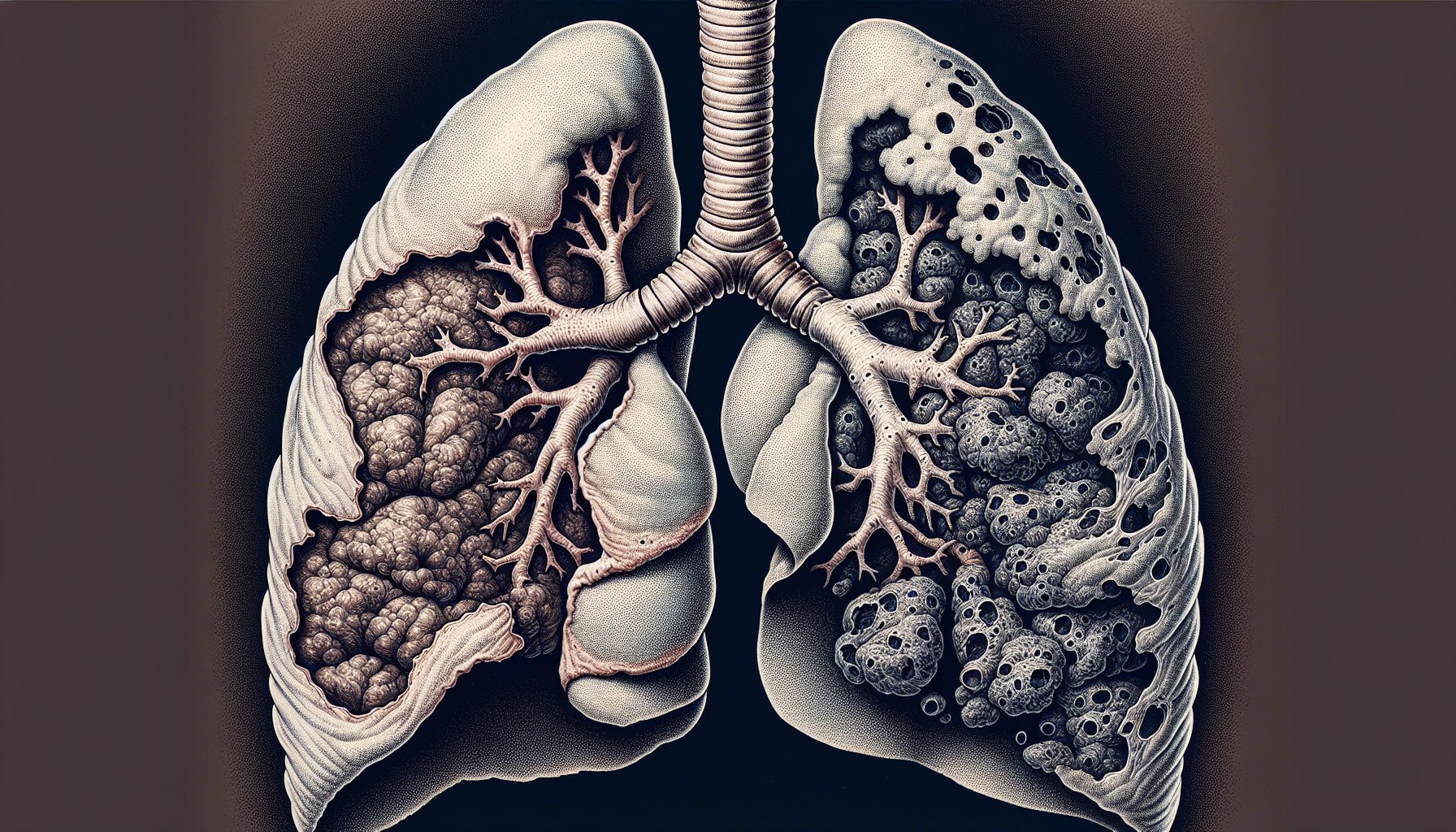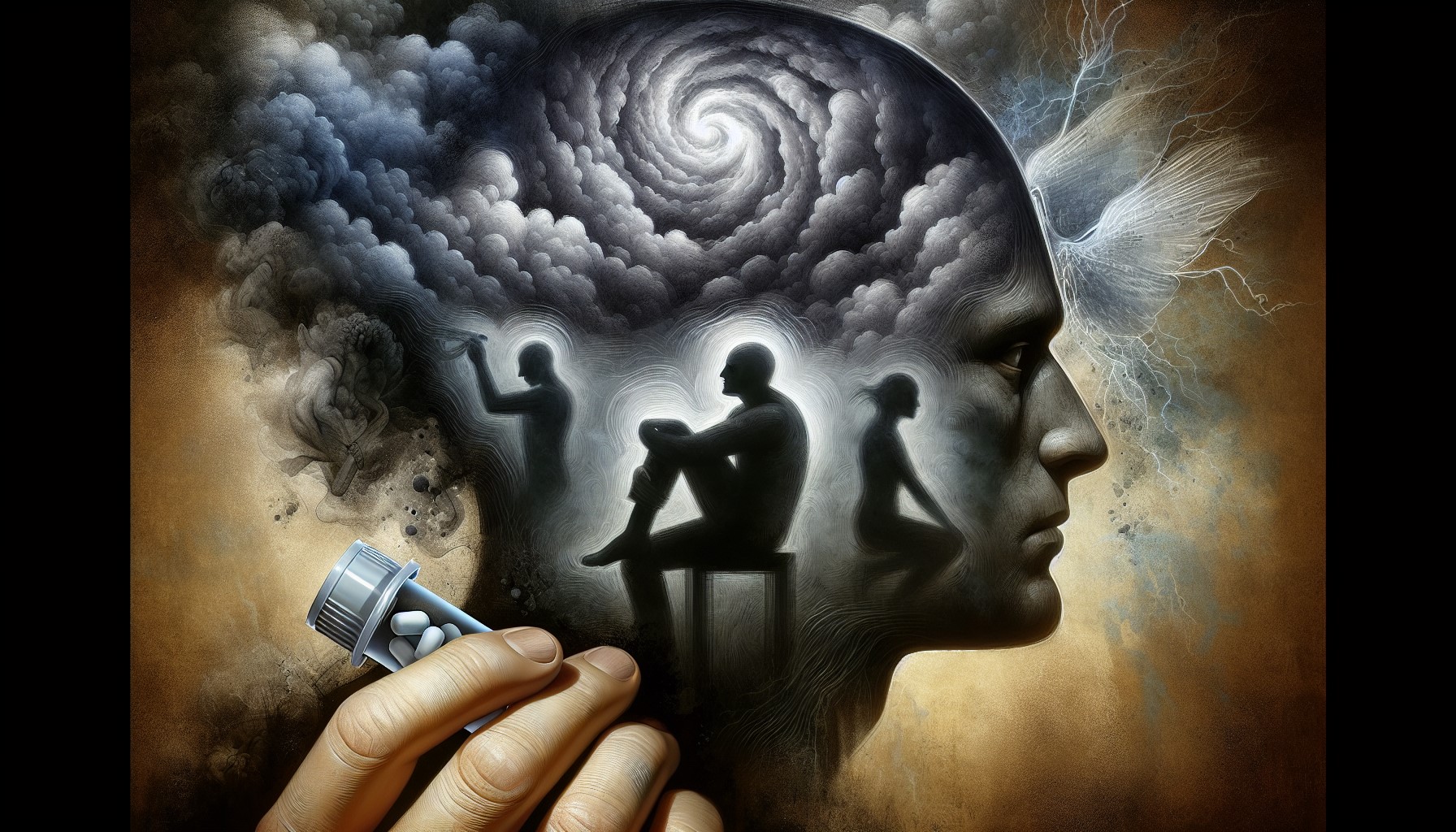Faced with the long term effects of drugs, individuals can suffer serious health problems extending to the heart, liver, and brain. This article examines these severe consequences, their influence on personal and public health, and the paths to resilience and recovery, equipping your with a clear, actionable understanding of the long term effects of drug use.
Key Takeaways
- Long-term drug abuse leads to severe and often irreversible damage to critical bodily systems, including cardiovascular, respiratory, and detoxification organs such as the heart, lungs, liver, and kidneys.
- Drug addiction has profound cognitive and mental health impacts, contributing to a decline in brain function and exacerbating mental health issues such as anxiety, depression, and psychosis.
- The ramifications of sustained drug use extend beyond health, causing social and behavioral problems that affect relationships, lead to legal and financial troubles, and have wider community repercussions.
Enduring Physical Health Consequences of Substance Abuse

Drug addiction carries with it a host of physical health issues, both apparent and hidden within the body’s complex systems. These serious health complications are not temporary. They have enduring effects that can result in chronic pain, permanent physiological alterations, and potentially fatal outcomes. Critical organs such as the heart, lungs, liver, and kidneys are often subjected to the detrimental impact of long-term drug abuse. Specifically regarding the cardiovascular system, substance misuse may cause various abnormalities including:
- fluctuating heart rhythms
- myocardial infarction (heart attack)
- elevated blood pressure
- cerebral vascular accidents (strokes)
- heart failure
The damage from taking drugs is universal. No one is immune among those caught in its grip. The destructive force on physical well-being varies from lung impairment due to inhaling methamphetamine fumes to internal injury caused by excessive alcohol consumption. As highlighted repeatedly by the National Institute on Drug Abuse (NIDA): sustained use of drugs leaves an irreversible imprint on your physical condition yet recovery remains possible if your quit using your drug of choice.
Cardiovascular Complications from Drug Abuse
The very substances you may turn to for comfort or escape can ironically serve as the architects of your demise when it comes to heart health. The misuse of drugs paves the way for a host of cardiovascular issues, ranging from elevated blood pressure and heart attack to dangerous blood clot formations. Cocaine, seductively toxic in nature, is known to precipitate chest pain akin to angina, trigger heart attacks and promote the thickening and coagulation of blood. Similarly deceptive are amphetamines and MDMA that lure individuals with fleeting sensations of bliss but at the expense of surging heart rates and arterial pressure. Even smoking drugs, like marijuana, transiently mimics this adverse cardiovascular surge.
Contrarily masked by its role in alleviating discomfort, opioids unfold their own chaos through causing infective endocarditis—a severe cardiac infection—and triggering episodes of cardiac arrest among other maladies. All these substances converge upon a singular destructive trajectory toward heart disease despite employing distinct pathways. They share an ominous capacity for calamity. Though robust within its networked structure comprising pulsating chambers linked by veins and arteries, the cardiovascular system still faces significant vulnerability under siege by illicit drugs replete with noxious chemical compounds.
Respiratory System Damage Due to Smoking Drugs

The respiratory system, critical for oxygenating the body, suffers immensely under the weight of drug misuse. Inhaling smoke from substances like crack cocaine and methamphetamine ravages the lungs, leading to severe diseases and diminishing lung capacity. Chronic bronchitis emerges as a prominent affliction caused by these drugs, characterized by inflamed breathing passages and incessant mucus production. Individuals with asthma experience aggravated symptoms due to drug smoke. Their episodes become more frequent and intense.
Those who inhale drugs such as marijuana are particularly vulnerable to lung cancer—a menacing risk that looms overhead—as foreign particles settle within pulmonary pathways impairing natural defense mechanisms against infection and illness. The repercussions extend beyond individual health risks. Secondary smoke exposure affects nearby communities while also challenging environmental systems responsible for air purification.
Drug abuse disrupts the essential rhythm of our respiratory function through smoking-related transgressions impacting this delicate life-sustaining process—our lifeline is thus subjected to erratic disturbances brought upon by inhaling harmful substances.
Liver and Kidney Failure from Chronic Drug Use
Chronic drug use insidiously undermines the liver and kidneys—key agents in the body’s detoxification and filtration process. The persistent abuse of substances like alcohol, acetaminophen, and certain prescription opioids can precipitate liver failure, marked by symptoms such as jaundice, nausea, and abdominal discomfort. These are distress signals from an organ pushed to its breaking point. Similarly, threatening is kidney failure that arises when drugs cause severe dehydration and muscle damage—an overwhelming challenge for the renal system.
The inherent dangers of heroin and prescription painkillers pervade deep into one’s renal architecture, causing irreversible kidney damage, which accumulates with each use. Contamination associated with injectable drugs amplifies this threat by introducing infections that ravage both liver and kidneys alike. These vital organs might stagger under the relentless onslaught wrought by ongoing substance misuse—the catastrophic collapse a sobering testament to the devastating power possessed by habitual drug consumption.
Cognitive Decline and Mental Health Disorders Linked to Drug Addiction

Drug abuse casts a shadow on the sanctity of the mind, assaulting both thought and emotion with its destructive presence. The mental deterioration accompanying long-term drug misuse is as integral to the story of addiction as are its physical repercussions. A range of mental health conditions —including anxiety and depression—all tightly interwoven with substance abuse, whether it’s through casual use of prescription drugs or regular consumption of substances like cannabis. Long term drug abuse alters brain chemistry significantly. Resulting in a decline in dopamine levels that dulls life’s pleasures and hampers cognitive abilities.
Mental illness shares an intricate bond with substance use disorder—a complex interaction shaped by cause-and-effect dynamics—as prior psychological issues can be reignited or new ones such as psychosis or schizophrenia might emerge due to drug abuse. What was once a refuge for the psyche becomes an arena for conflict, resonating with reverberations from various mental disorders after each episode of substance abuse. Investigating treatment options may uncover pathways to recovery and foster optimism.
The Relationship Between Substance Use Disorder and Mental Illness
The relationship between mental illness and substance use disorder is complex and fraught with danger. Drugs like cocaine can not only reactivate previously existing mental disorders but are also capable of causing conditions such as anxiety, depression, and psychosis. Potent strains of cannabis once celebrated for their strength are now associated with severe mental disorders including psychosis and schizophrenia due to the connections identified between them. Drug use doesn’t always follow after. It might instead trigger or exacerbate pre-existing vulnerabilities in one’s mental health.
On the flip side, those struggling with psychiatric ailments such as anxiety, depression or schizophrenia may self-medicate using drugs in an ill-fated effort to manage their symptoms. This misguided strategy initiates a destructive loop that intertwines addiction with worsening mental illness. The path leading from suffering from a mental disorder to subsequent addiction highlights the issue where one often serves as a precursor or catalyst for engaging in substance abuse behaviors. Consequently, treatment options must be designed comprehensively so they target both the individual’s drug dependency issues and any accompanying co-occurring psychological illnesses they are dealing with.
Long-Term Impact on Brain Function
The complexity of the human brain makes it vulnerable to the long-term effects of substance abuse, which often leads to changes in both nerve cell structures and neurotransmitter functions. Substances such as Ecstasy can impart temporary euphoria but also contribute to memory dysfunction and a diminished response to standard antidepressants – clear indicators that drug use has induced significant alterations in cerebral operations. Hallucinogenic substances are notorious for inducing mind-warping experiences. These may intensify pre-existing mental health issues or produce visual and auditory distortions and persistent flashbacks—compelling evidence of enduring neurological transformations due to narcotic misuse.
These cognitive disruptions extend beyond mere fleeting lapses. They engrave lasting impressions on individual perception and action even when the drugs’ immediate influences have dissipated. Drug dependence leaves behind its destructive hallmarks: neural pathway breakdowns, accelerated neuron mortality, and compromised mental acuity count among the enduring repercussions from sustained drug consumption.
Uncovering various layers within this intricate dilemma reveals how each class of drugs uniquely affects our nervous system with an indelible impact that reflects their specific interactive properties with brain function.
Indirect Social and Behavioral Consequences of Long-Term Drug Abuse

Substance abuse’s impact stretches far beyond the individual, affecting families, friends, and communities at large. The social and behavioral fallout from chronic substance abuse is substantial—damaging relationships, instigating legal issues, and destabilizing one’s financial standing. Families often experience the most severe effects as addiction distorts familial bonds and impedes children’s emotional growth which could predispose them to future drug problems. Legal complications are a common consequence of offenses related to drugs that cast lasting shadows on those ensnared by unlawful substance use.
Financial difficulties become increasingly exacerbated as addiction impairs judgment leading to unemployment, mounting debts, and various economic struggles. These indirect outcomes form a complex tapestry of private angst and public strife—a stark reflection of disruption extending well beyond mere physical or mental health concerns. In exploring how illegal drug consumption leads to these extensive legal battles and fiscal dilemmas, we unveil the grim truths about life shackled by the chains of addiction.
Legal and Financial Repercussions of Illicit Drug Use
Engaging in unlawful drug use can lead one down a dangerous road, often culminating in an array of legal and financial predicaments. Those ensnared by drug addiction face not only the direct costs associated with their habits, but also substantial legal expenses including court fees and attorney charges. On top of these, there is the ever-present risk of incarceration contributing to ongoing fiscal stress and future monetary challenges. Such burdens are heightened due to:
- Accumulating debts
- Risk of homelessness
- Substantial expenditure related to maintaining a drug addiction
- Neglecting essential duties like employment and settling bills
This neglect Inflates the already steep costs linked to substance dependency.
Drug addiction’s financial toll extends beyond individual suffering—it sends shockwaves through entire communities, fostering wider economic disarray and societal disruption. The descent from addictive behavior into economic despair occurs at an alarming rate, underscoring the urgency for inclusive approaches that take into account both rehabilitation’s economic elements.
An examination into how families and neighborhoods are impacted reveals that repercussions stemming from someone’s struggle with drugs transgress personal boundaries. They permeate communal structures too. It becomes evident then that the consequences born out of such addictions extend far beyond just those directly involved—in fact they fray at society’s very seams.
The Ripple Effect on Family and Community
The impact of drug addiction reverberates through families and communities, often evidenced by behaviors like:
- mood swings
- elevated anxiety levels
- deteriorating personal connections
- unrealized potential in individuals
- an escalating likelihood that substance abuse issues will be passed on to future generations
Addiction’s effect within a family is reflective of its broader societal consequences.
In this context, support groups and community organizations are indispensable, providing vital resources and assistance to prevent the emergence of drug addiction. These interventions build resilience among family members and within communities at large, interrupting the habitual patterns of addiction that might otherwise continue unchecked. Participation in support groups not only offers ways to cope, but also serves as a platform for education and empowerment—essential elements in combating drug misuse.
When we acknowledge how drug misuse heightens the risk for infectious diseases, it underscores the reality that ramifications from drug addiction extend beyond individual struggles to pose significant public health risks.
The Increased Risk of Infectious Diseases from Drug Misuse
The abuse of drugs, specifically through injection, markedly increases the chance of acquiring infectious diseases that are life-threatening like HIV and hepatitis C. This heightened risk is Magnified by the use of shared or unclean needles and syringes, which broadens its impact from single users to whole communities, making it a significant public health challenge. The opioid epidemic has exacerbated this problem even more, spreading such blood-borne infections not just in cities, but throughout suburban and rural regions as well.
In response to these issues, critical harm reduction measures have been put into place. These include needle exchange programs along with opioid replacement therapies aimed at curbing the spread of infectious diseases within drug-injecting populations. Through offering sterile injecting equipment alongside services for proper disposal and channels for testing and treatment options. They work towards lowering infection rates among those who misuse drugs via injections.
It is increasingly clear on our quest to comprehend recovery processes that addressing the dangers associated with infectious disease transmission goes hand in hand with combating drug addiction itself. Reducing these risks plays an essential role within the broader context of fighting against substance dependency crises.
Rehabilitating the Addict: Pathways to Recovery
Freedom from the hold of drug addiction is a tangible outcome, thanks to a wide variety of personalized treatment options and dedicated services. These treatments range in approach including intensive residential stays or outpatient programs, all tailored to suit the specific requirements of those seeking aid. There are also targeted initiatives for particular groups like adolescents, women, and various cultural minorities that ensure an empathetic consideration for each individual’s unique battle with substance dependency. The objectives these initiatives strive towards are clear: reduce or eradicate drug use completely, enhance overall life functionality, and lessen chances of falling back into old habits.
The road to overcoming addiction incorporates pivotal involvement from peer support entities such as Alcoholics Anonymous. They provide crucial continuity in care, which greatly contributes to one’s success after formal treatment ends. Recovery from drug and alcohol abuse can be both challenging and lengthy, but when approached with dedication alongside proper support networks, it results in decreased frequency in using substances as well as less chance of returning to addictive behaviors. It has been observed that prolonged engagement with therapeutic interventions amplifies its positive effects leading to better recovery outcomes thus highlighting consistent commitment during rehabilitation is key.
In this arduous journey away from substance reliance stands an array of compassionate professionals – healthcare workers, experts on addiction issues along licensed therapists who collectively act as lighthouses directing individuals trapped by their addictions towards hope-filled shores absent any presence of drugs.
Lifestyle Changes and Preventative Measures
Addressing the challenge of preventing drug addiction involves more than mere determination. It calls for preventive measures focused on fostering a healthy lifestyle alongside awareness of factors that increase susceptibility to addiction. Incorporating habits such as consistent exercise, eating well, and getting enough rest can create strong defenses against the temptation of drugs. Providing educational outreach about substance abuse dangers, coupled with robust community backing and readily available mental health resources, lays an essential groundwork for timely intervention. It’s critical to identify and manage the various risk factors that might lead individuals towards drug misuse in order to devise successful preventive tactics.
One very effective yet often overlooked measure is quite straightforward: abstain from initiating drug use altogether. This basic principle can sometimes be ignored but remains fundamental in protecting both physical and mental wellbeing from the detrimental effects associated with drug abuse. Whether acting individually or collectively within communities, championing healthcare knowledge, endorsing beneficial lifestyle decisions, and nurturing surroundings conducive to these principles can significantly impact curbing addiction rates. Through our united actions emphasizing education and support systems focused on positive choices, we aim to diminish instances of drug misuse along with its extensive adverse outcomes.
Physical and Mental Health Conditions are the Most Severe Effects of Abusing Illegal Drugs
The journey through the labyrinth of drug abuse and its consequences is both harrowing and enlightening. We have traversed the landscape of physical health problems, cognitive decline, mental health disorders, and the broader social and behavioral consequences that stem from the scourge of addiction. We’ve explored the increased risks of infectious diseases and the pathways to recovery, culminating in the importance of lifestyle changes and preventative measures. Our exploration underscores a poignant truth: while the shadow of drug abuse is long and pervasive, the light of knowledge, support, and recovery shines brighter. It is in this light that we find hope for those touched by addiction and the promise of a future free from its chains.
Frequently Asked Questions
What is the side effect of long term medication?
Prolonged use of medication can give rise to numerous health complications, including difficulties with the liver, kidneys, and heart. Issues may also extend to dental and mental health concerns, along with a possible risk of developing dependency.
Vigilant oversight and regulation of chronic medication consumption are essential in order to reduce the likelihood of these adverse effects occurring.
What are the harmful effects of drugs?
The detrimental consequences of substance abuse encompass enduring health complications, including damage to the liver, kidneys, and heart, oral health problems, mental health issues such as anxiety and depression can arise from drug use alongside addiction.
Recognizing these dangers is crucial, as is seeking assistance when necessary.
What is the expectancy effect of a drug?
The anticipated impact or outcome that a person foresees from consuming a drug or substance is known as the expectancy effect. Such expectations can affect an individual’s behavior and might play a role in creating placebo effects during medical studies, as well as shaping behaviors related to seeking drugs and the actions that follow thereafter.
Can drug abuse cause mental health disorders?
Indeed, the misuse of drugs can precipitate or exacerbate conditions related to mental health, including anxiety, depression, and psychosis. It may also result in enduring alterations to brain function.
How does drug addiction affect families and communities?
Addiction to drugs can cause upheaval within families, precipitate monetary and legal problems, put stress on personal connections, and affect subsequent generations as well as the wider society. Its influence extends significantly across familial and communal spheres.



Facebook Comments